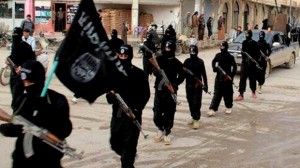It’s not as easy as with Al Qaeda to cut off Isil’s funding. Here’s why
 Thursday’s summit on cutting off Isil’s funding, chaired by US treasury secretary Jack Lew, was unable to find reasonable solutions to the following basic problems:
Thursday’s summit on cutting off Isil’s funding, chaired by US treasury secretary Jack Lew, was unable to find reasonable solutions to the following basic problems:
** Unlike Al Qaeda, Isil is not dependent on money from beyond the borders of its so-called “state”. International anti-terrorist financing legislation consequently doesn’t mean that much
** A “state” can only become bankrupt in any meaningful sense if it runs out of money to buy what it needs
** Isil, which controls territory the size of the UK, taxes the roughly eight million residents of its “state”, sells oil and allows the sale of antiquities, thereby earning what it needs to buy weapons/trucks and other necessaries to pursue war. According to a 2014 Thomson Reuters study, the extremist group has more than $2 trillion in assets under its control, with an annual income of $2.9 billion.
** Unlike Greece very recently, Argentina slightly further back, and 16th-century Spain under King Philip II, Isil’s “state” can’t default on borrowings because it has not borrowed from the world
** Bombing Isil-controlled “oil infrastructure”, as President Obama said on December 7, has meant the destruction of “hundreds of their tanker trucks, wells and refineries.” But this is hardly going to disrupt financing; it can only make Isil a bit poorer
There is really no option other than to take away territory and destroy the pretensions to statehood, with all the implicit powers of tax and control of hundreds of thousands of people.
The Thomson study listed the following taxes imposed by Isil on residents of the “state”:
**an $800-per-truck levy on vehicles entering Iraq from Jordan and Syria
** a five per cent tax collected for social welfare and salaries
** a $200 road tax on drivers in northern Iraq
** a 50 per cent tax for the ability to loot Raqqa’s archaeological sites
** jiziya, a fee paid by non-Muslims
As Valérie Marcel, a Chatham House associate fellow who focuses on energy and resources, puts it, so long as Isil controls territory, it has a source of income.
Which bit of that is unclear? And why?
(Tomorrow: Isil’s so-called ‘state’ can tax but how long can this extortionist system last?)

